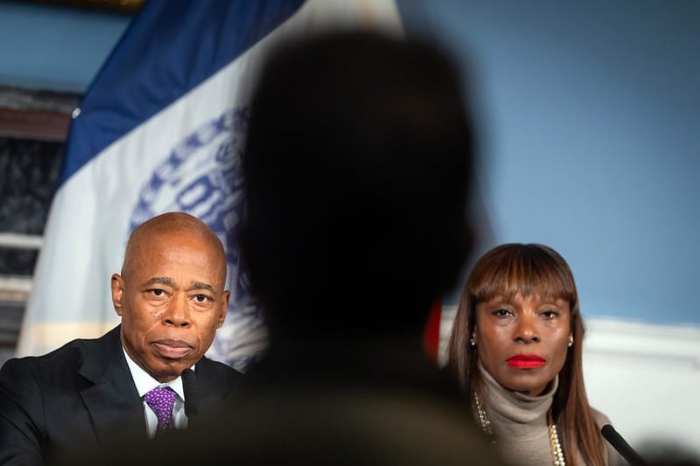Javier and Jacinto Romero want to save their home.
After their parents, Gregorio and Rachel Romero’s, earlier letters and phone calls to the lender failed to get helpful advice, or any options at all, they wrote a detailed explanation of the family’s financial situation to the mortgage lender, Countrywide Home Loans, pleading for assistance.
“We are writing to you out of necessity because our family has fallen victim again to foreclosure. But please listen to our story as it is a very different one,” they wrote in the letter.
They received the same response as their parents, despite their being students: Is there any way you can make more money or ask someone to lend you the money?
Gregorio and Rachel Romero joined more than 250 Queens residents in the York College meeting hall Monday evening, February 5, to attend a 4-hour workshop, arranged by the city’s Office of the Comptroller, on foreclosure prevention.
William C. Thompson, New York City Comptroller, in his opening address, acknowledged the severity of the national foreclosure crisis.
New York City Councilmember Leroy Comrie, who represents southeast Queens, estimated that over 14,000 city residents filed for foreclosure in 2007 - double the number of foreclosures in 2005 - and more than half of those filings were located in Queens. He also noted that southeast Queens was affected more than any other neighborhood and “there has not been a comprehensive, inclusive plan to help us get out from under it.”
His colleague, Councilmember James Sanders, Jr., echoed his sentiments.
“If this is not stopped, this will be the largest loss of black-owned land since the Great Depression and the largest loss of Latino land since the Mexican-American War and the largest loss of Asian land since the internments in World War Two.”
In the workshops that followed the opening remarks, many attendees described some of the pitfalls they encountered during the mortgage application process including false promises from mortgage brokers that large amounts of cash would be available at any time to the borrower in an “escrow account,” brokers’ discouraging borrowers from seeking outside legal advice and threats that it was impossible to reconsider the application without forfeiting their down payment and being charged for additional cancellation fees.
Further preying on homeowners’ fears of losing their homes, a small cottage industry has sprung up, charging customers large fees for foreclosure prevention and credit counseling services.
The Romeros recounted paying nearly $5,000 to Safehouse Mortgage in the hopes the company would make good on their promise to negotiate with the lender to help them avoid foreclosure. To date, they have received little help and are unsure whether the company has even contacted Countrywide.































